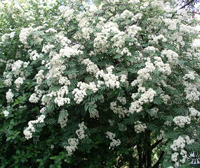People are under influence of many bad things in the world, often against their will.I guess what complicates this comparison is the fact that people in the real world aren't under the influence of a ring of power that magnifies the evil within them.
People who could be nice and law-abiding citizens if brought up in a loving family and in a good neibourhood may also grow up as killers and criminals if brought up in getto in a family of drunkards/abusers, or taken up as child soldiers in Africa etc.
I see Ring's influence not quite as addiction to a behaviour-changing drug (even though this is present too) but more like a malicious influence of evil things in the world, an analogy of real-world curcumstances which twist a human being, release a beast which, I believe, is inside any of us. Yes, I subscribe to the fallen world/fallen humanity theory.
A beast can be awoken in a perfectly normal society, in perfectly normal people by hardship, mob frenzy, political/social pressure etc. Think Nazi Germany, think mob lynching in USA in 19th century, think even public riots like the Boston Red Sox celebrations turned violent a year before, which resulted in a death of a woman. Think all those oppressive regimes like Mao's, Pol Pot's or Stalin's.
Are those people who were going along with those crimes and murders responsible for it? Absolutely. But do we also blame the society, the outside influence? Yes to that as well. People were coerced, convinced, carried away or should we better say *seduced* into thinking that it's OK to do something which should be considered abhorrent in normal circumstances.
Tolkien talks about it in his letters on Frodo's fall to the Ring. His belief, which I share, is that all of us are fallible and can be seduced into doing something bad. We have to judge not the fact of the fall itself, but the measure of seduction and the measure of resistance to it. That's what Christians ask for in the prayer "Not lead us to temptation, but deliver us from evil". Because it can happen, to any of us. We don't know which pressure or lie or threat we might be exposed to, and we can only hope that we'll have a strength to remain good people in the face of it.
Going back to Gollum. He murdered under influence of the Ring, and his later crimes were under the Ring as well. Otherwise he was an unpleasant guy, but not evil. The Ring represents an ultimate seduction by evil, an ultimate pressure to do bad. An analogy would be, for example, being taken up as a child soldier by thugs in Africa and taught to do horrible things, taught that it's OK. Taught evil by someone who has complete control over you and whose moral pressure you don't have facilities to withstand.
Gollum was an innocent being twisted by evil, tortured by it and turned into a monster, conditioned by the Ring to be bad. My analogy - child abuse, rather than addiction.
I would have compassion to the victim of child abuse, even though he would turn up to be a mass murderer.

